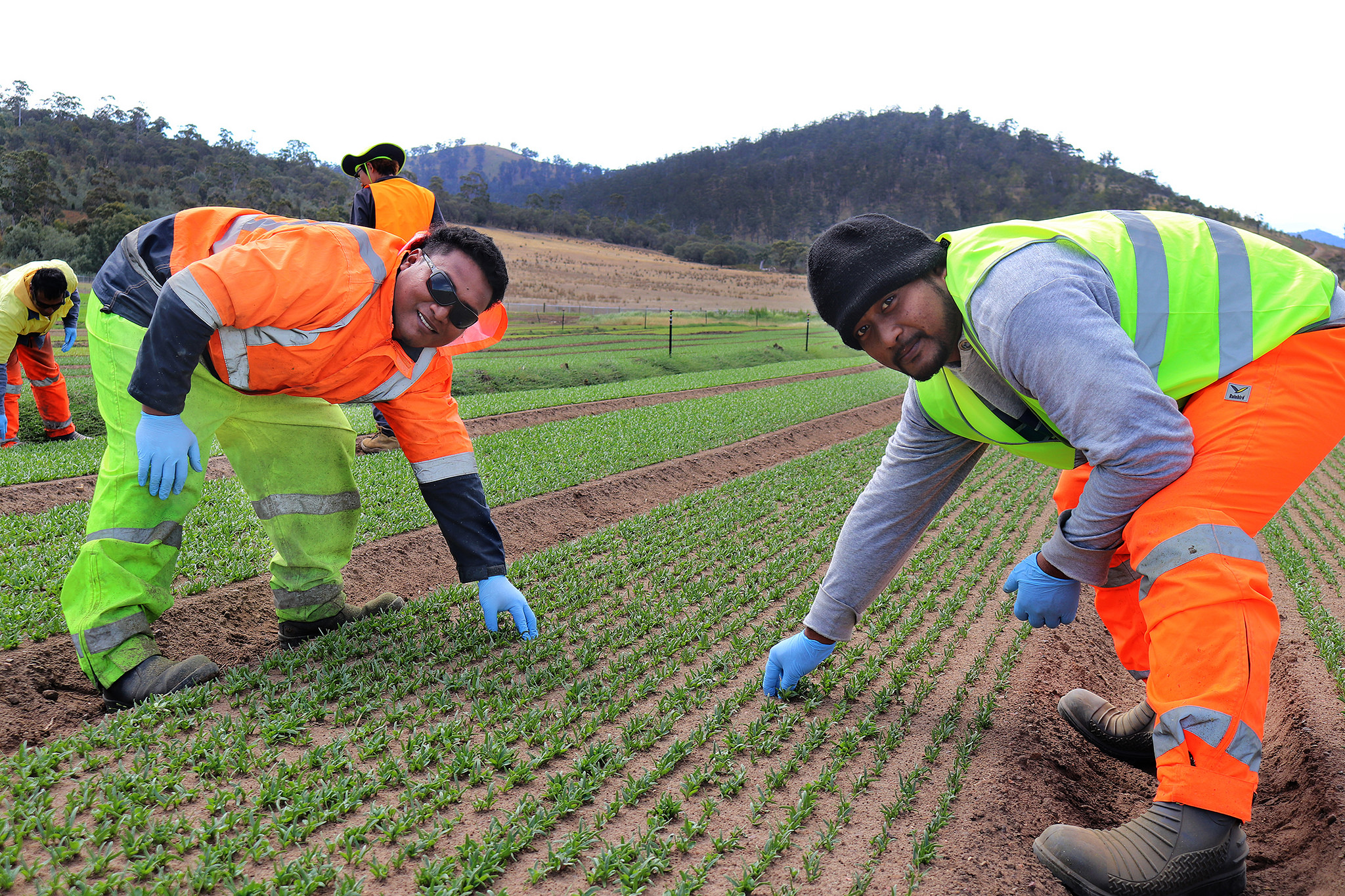Farmers have criticised the introduction of a 30-hour weekly guarantee for workers under the Pacific Australia Labour Mobility scheme, claiming it is out of touch with the demands of working in agriculture.
And they have warned that farmers could turn away from the scheme altogether if changes are not made.
The reforms announced last month will require farmers to offer more consistent hours. Under the previous rules, farmers were required to offer Palm visa holders a minimum of 30 hours work a week but that could be averaged over the entire placement, which could be up to nine months. As of 01 January 2024, the minimum hours guarantee will be averaged over just four weeks. From 01 July 2024 employers will have to offer a minimum of 30 hours a week with no averaging.
Advocates say this will help workers stay afloat by providing more consistent wages, reducing opportunities for exploitation.
But some employers say the changes complicate the scheme and do not provide the flexibility required for seasonal businesses such as horticulture.
Red Rich Fruits employs almost 70 workers on Palm visas. Director Matt Palise said the changes have “put in another layer of bureaucracy and another level of administration”.
“The problem we have now is if we get two weeks of rain in a growing region, we have no other option now other than to adhere to those standards, which will cost thousands of dollars, because there’s no flexibility in the plan,” he said.
“They’re not disadvantaging the big farmers here. It’s the small mum and dad farmers which are struggling for workers which now have an added layer of regulation to make it more difficult for them to bring in workers.”
The National Farmers Federation released a statement saying farmers were increasingly frustrated at changes that they say will “send the Palm into meltdown”.
The NFF’s horticulture council spokesperson, Rachel Chambers, warned of a “mass exodus” of farms from the program and said the government was better served by enforcing existing standards by stamping out rogue labour hire companies and dodgy employers.
A spokesperson from the Department of Employment and Workplace Relations told Guardian Australia that the changes had been introduced after 18 months of consultation with industry, unions and overseas partners and contained flexibility for “exceptional circumstances” like rainfall.
“Low work-hours is a significant concern and a key driver for Palm workers leaving the scheme and potentially breaching their visa conditions,” the department said.
“Workers who are offered fewer than 30 hours every week struggle to support themselves and their families in the Pacific.”
According to the Department of Home Affairs, 4,811 workers were reported as having absconded from the scheme in the past five years. The department said the improved conditions were expected to reduce disengagement.
The Australian Council of Trade Unions president, Michele O’Neil, welcomed the changes and said they were a major step in combating exploitation.
“This will make a huge difference for the thousands of Pacific workers here on the scheme and brings us into line with the standards in the seasonal worker programs in New Zealand and the UK,” she said.
This was echoed by the incoming Australian Workers Union national secretary, Paul Farrow, who told Guardian Australia the changes would help Australia regain the respect of Pacific nations.
“For too long the farming lobby has positioned itself as beyond reproach,” he said. “Instead of defensive and misleading claims, it should instead dedicate itself to rooting out the many bad employers across the sector to ensure those doing the right thing are not placed at a disadvantage,” he said.
SOURCE: THE GUARDIAN/PACNEWS















